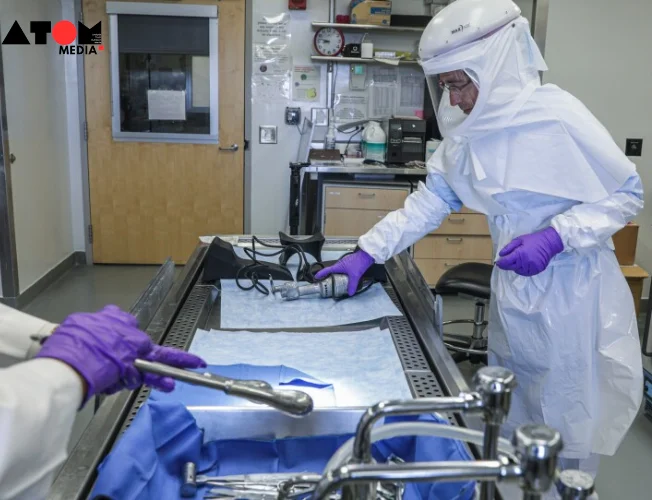Singapore is currently grappling with a new wave of COVID-19 infections, with the Ministry of Health (MOH) reporting a significant surge in cases. From May 5 to 11, the country recorded over 25,900 cases, marking a 90% increase from the previous week’s 13,700 cases. In response, the government has issued a health advisory urging citizens to wear masks again to curb the spread of the virus.
Rising COVID-19 Cases in Singapore
The recent spike in COVID-19 cases has nearly doubled the infection rate week-on-week. Health authorities are closely monitoring the situation, emphasizing the need for preventive measures. The average daily hospitalizations have also risen, reaching about 250, up from 181 the previous week. Health Minister Ong Ye Kung indicated that this wave is in its early stages and is expected to peak between mid and end of June.
Mask Advisory and Public Health Measures
In light of the escalating cases, Singapore’s government has reintroduced the mask advisory, recommending that people wear masks in crowded and enclosed spaces. This measure aims to mitigate the spread of the virus and protect vulnerable populations, including the elderly and those with underlying health conditions.
Hospital Capacity and Healthcare System Strain
The MOH has highlighted the importance of preserving hospital bed capacity. Public hospitals have been instructed to reduce non-urgent elective surgeries and transition suitable patients to home care or transitional facilities. This strategy is intended to ensure that hospitals can manage the increased number of COVID-19 patients without overwhelming the healthcare system.
Minister’s Appeal for Vaccinations and Responsible Healthcare Use
Health Minister Ong Ye Kung has urged elderly individuals, medically vulnerable people, and residents of aged care facilities to receive an additional dose of the COVID-19 vaccine if they haven’t done so in the past 12 months. He stressed the importance of not overburdening emergency departments with mild cases and advised the public to seek treatment at hospitals only if necessary.
“If the number of COVID-19 cases doubles one more time, Singapore will have 500 patients in its healthcare system, which is what Singapore can handle. However, if the number of cases doubles a second time, there will be 1,000 patients, and that will be a considerable burden on the hospital system,” said Ong.
No Immediate Plans for Social Restrictions
Despite the surge in cases, the government currently has no plans to impose social restrictions or other mandatory measures. COVID-19 is now treated as an endemic disease in Singapore, and additional measures will only be considered as a last resort. The focus remains on vaccination, responsible healthcare usage, and individual preventive actions like mask-wearing.
Global and Local COVID-19 Variants
Globally, the predominant COVID-19 variants are JN.1 and its sub-lineages, including KP.1 and KP.2. In Singapore, KP.1 and KP.2 account for over two-thirds of the cases. Early this month, the World Health Organization classified KP.2 as a variant under monitoring. There are currently no indications that KP.1 and KP.2 are more transmissible or cause more severe disease than other circulating variants.
The Importance of Vigilance and Preparedness
As Singapore navigates this new wave of COVID-19, vigilance and preparedness are crucial. The government’s advisory on mask-wearing, coupled with the call for booster vaccinations, aims to mitigate the impact of the virus on the community. Public cooperation and adherence to health guidelines will play a vital role in controlling the spread of COVID-19 and ensuring the healthcare system remains resilient.
Conclusion
Singapore’s experience with the new wave of COVID-19 underscores the ongoing challenges posed by the pandemic. With a significant increase in cases and a proactive response from the government, the focus is on preventive measures and vaccination to manage the situation effectively. As the world continues to battle COVID-19, Singapore’s approach highlights the importance of adaptability, community cooperation, and robust healthcare strategies in combating the virus.





